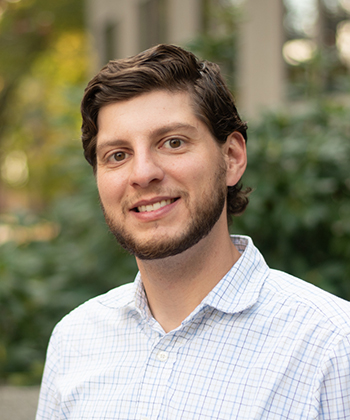About
The Conference
The Psychology & the Other Conference is a yearly convening that aims to revitalize psychology by bringing it into dialogue with philosophy, theology, and other humanities rich traditions. Since its inception in 2011, the Conference has served to gather under a single intellectual roof perspectives that had heretofore been largely isolated from one another. Attended by clinicians, academic psychologists, philosophers, theologians, historians, poets, anthropologists, and cultural theorists, this community attempts to foster new and emergent ways of speaking to human identity, suffering, and potential in order to better serve the call of the suffering Other.One of the distinctive features of the conference is the intentional pairing of plenary speakers with persons from different disciplines to create a type of catalytic engagement that upsets the insularity and jargon-laden fixtures that often come to determine the currency of exchange at discipline-specific conferences.
“Responsibility for the other, this way of answering without a prior commitment… is prior to freedom. The face of the other in proximity… is the way of the infinite.”
The Other
Driven by a shared passion to challenge some of the insularity of our concepts and creatively invite the possibility of more ethically dynamic means of understanding persons and health, participants in this Conference have found in the idea of the Other an important vehicle for bringing into meaningful dialogue disciplines and fields of inquiry within psychology that share something of a common purpose. The word Other carries with it several meanings and this Conference attempts to serve each, inviting psychology to benefit from other disciplinary understandings, recognizing the ethical responsibility we each bear for one another, and attending to those who have been othered by the world: the widow, the orphan, and the stranger, those living on the margins of society.
The Community
This vibrant community of scholars and practitioners include (but are not limited to) psychologists, psychoanalysts, psychiatrists, social workers, philosophers, sociologists, anthropologists, theologians, clergy, and graduate students of all persuasions. All are welcome to the conversation.



Core Team
We are a group of interdisciplinary scholars, researchers, and practitioners who are dedicated to revitalizing philosophical, theological, and psychosocial traditions in psychology in order to augment our moral vocabulary for understanding clinical work within the context of a higher ethical calling.
Conference Chairs
David Goodman is Dean of the Woods College of Advancing Studies, the Executive Director of the Center for Psychological Humanities and Ethics, and serves on the faculty in three Boston College departments: Counseling, Developmental, and Educational Psychology, Philosophy, and Formative Education. Dr. Goodman has written over a dozen articles on continental philosophy, Jewish thought, social justice, and psychotherapy. Dr. Goodman currently serves as the Series Editor for the Psychology and the Other Book Series with Routledge. He has authored and edited over a dozen books including The Demanded Self: Levinasian Ethics and Identity in Psychology (with Duquesne University Press, 2012) and Psychology and the Other (with Mark Freeman and Oxford University Press, 2015). Dr. Goodman is also a licensed clinical psychologist and has a private practice in Boston, MA.
Mookie is a psychotherapist, professor, and researcher – interested in suffering, embodiment, meaning-making, narratives, trauma, memory, and ethics. He is a Licensed Independent Certified Social Worker (LICSW) psychotherapist in private practice, which blends narrative therapy, psychoanalysis, logotherapy, mindfulness traditions, and body-based techniques. Mookie is a Part-Time Faculty for the School of Social Work (i.e. Narrative Therapy, Adult Psychological Trauma) and Department of Psychology & Neuroscience (i.e. Introduction to Psychopathology) at Boston College. Additionally, he is a Research Consultant, for social psychology research at the Morality Lab and philosophical psychology initiatives through the Center for Psychological Humanities and Ethics. Finally, Mookie is pursuing a PhD in Pastoral Theology & Psychology at Boston University. In all his various roles, Mookie hopes to participate in our duty to better our society: particularly for folks who suffer injustices; for the widow, orphan, and stranger; for a future and world beyond one's self.

Sofia Rietti
Sofia is the Project Administrator at Boston College's Center for Psychological Humanities & Ethics and a Master's candidate in Mental Health Counseling. She has contributed to past Psychology and the Other conferences, including the inaugural international event in London. Sofia co-edited a special issue for Studies in Gender & Sexuality and co-authored Making Sense of Being and Transforming: Introduction to the Psychology and the Other Special Issue. Currently gaining clinical experience at Bournewood Health Systems, she supports LGBTQ+ communities facing co-occurring mental health challenges. Her research interests are reproductive and maternal mental health and the mind-body connection. Looking ahead, Sofia is considering future plans in private practice or further academic pursuits.
Core Team Members
This conference is brought to you with the generous support of:

Center for Psychological Humanities & Ethics, Boston College

John Templeton Foundation





.jpg)